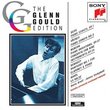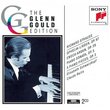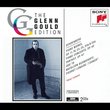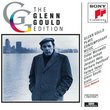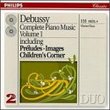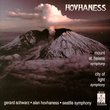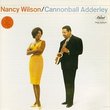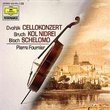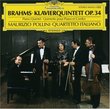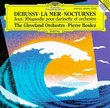Often Eerie, Yet Beautiful
Anne M. Marble | MD, USA | 06/22/2000
(5 out of 5 stars)
"These are some of the lesser-known recordings by Glenn Gould, but they deserve to be better known. Especially the Sibelius. (Or maybe I'm just strange. )The first disk, containing Grieg and Bizet, has some beautiful music. Definitely not the type of music you associate with Glenn Gould. But I keep returning to the Sibelius. Here, Glenn Gould experimented with splicing and microphone placement to capture the best effects at each possible place in the score. You will probably envision Northern landscapes while listening to this -- yet I've never found this music cold.My only regret is that Glenn Gould didn't get a chance to record more Sibelius pieces. And that he never got another chance to experiment with microphone placement and splicing to this extent. Fans who don't mind experimentation should consider ordering Glenn Gould's "The Solitude Trilogy" -- where human voices become the instrument of his "composition." Now that's an experimental work..."
'AN INCURABLE ROMANTIC'
DAVID BRYSON | Glossop Derbyshire England | 08/21/2004
(5 out of 5 stars)
"That was how Gould chose to describe himself on one occasion, perfectly aware that this was not his usual image. He is one of the greatest Brahms-players I have ever heard in my life, which in my book entitles anyone to call himself a romantic. This 2-disc set contains some fascinating out-of-the-way romantic works by Grieg and Bizet, plus some of the rarely-heard piano music of Sibelius, whose `romantic' credentials are possibly a bit more questionable. There is only just enough music to call for a second disc, but I would not have wanted to lose any of it.
There is one unqualified masterpiece here, Bizet's Chromatic Variations, a piece greatly admired by Gould, and this performance of it is also found in the Great Pianists of the 20th Century series, now out of production but still available second-hand. Everything else in the set strikes me as good and interesting music, deserving better than the neglect that it usually receives. Grieg's sonata in particular seems to me a distinctly better piece than his piano concerto. The Sibelius sonatinas are also works of his full maturity, dating from between the 4th and 5th symphonies. They are just big enough not to be called miniatures, and when Robert Layton in his fine book on the composer says that their movements average at less than two minutes' length each he must either have been using a faulty calculator or playing them awfully fast. The three lyric pieces, dating from rather earlier, are collectively named after Kyllikki, one of the maidens of the island wooed by Lemminkainen on a drive-by basis before he set out after Pohjola's daughter, and seem to have been envisaged by the composer as a single suite, like the four legends for orchestra but on a smaller scale.
I find Gould's approach perfectly appropriate, and easily romantic enough for my own taste. The liner note says some rather conventional things concerning Gould, apparently finding abstinence from pedal-effects and rubato, but intrusive contrapuntal playing that perhaps endangers the melodic line. To my own ears, this is simply moonshine. There is plenty of the right kind of pedalling in the Bizet nocturne for one. I can concede that in Bizet's second variation, marked `a tempo rubato', there is no rubato whatsoever until the final cadence, but as the variation lasts only 45 seconds I wonder just how much rubato the composer can really have intended. What struck me a lot more, even from a romantic viewpoint, was Gould's awesome build-up of tone in variations 6 and 7. In the Sibelius lyric pieces the only movement that strikes me as calling without qualification for the epithet `romantic' is the first, possibly the weakest movement of the set, and I find no lack of romantic commitment in this performance. Again, I was very taken with Gould's extremely slow tempo in the third movement of the Grieg sonata, a romantic reading indeed, I should say.
The liner note is quite helpful and informative when it comes to factual matters regarding the performer and the recording technique. Happening to own another recording by Gould of the Bizet variations, I played the two recordings back-to-back, and although I hate to say it I thought the other recording was perhaps slightly better, bit-mapping or no bit-mapping. One way or the other, the recorded quality here is very good indeed, and this set is a real treasure from this eccentric but supereminent genius of the 20th century piano. There is a certain amount of background vocalising, but it doesn't bother me in the slightest. As for the playing, it is a lot less eccentric and a lot more romantic than they often let on."


 Track Listings (21) - Disc #1
Track Listings (21) - Disc #1